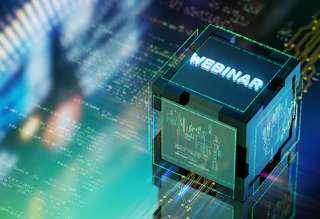- Our Story
- Publications & Resources
- Publications & Resources
- Publications
- IEEE Signal Processing Magazine
- IEEE Journal of Selected Topics in Signal Processing
- IEEE Signal Processing Letters
- IEEE Transactions on Computational Imaging
- IEEE Transactions on Image Processing
- IEEE Transactions on Information Forensics and Security
- IEEE Transactions on Multimedia
- IEEE Transactions on Signal and Information Processing over Networks
- IEEE Transactions on Signal Processing
- IEEE TCI
- IEEE TSIPN
- Data & Challenges
- Submit Manuscript
- Guidelines
- Information for Authors
- Special Issue Deadlines
- Overview Articles
- Top Accessed Articles
- SPS Newsletter
- SigPort
- SPS Resource Center
- Publications FAQ
- Blog
- News
- Dataset Papers
- Conferences & Events
- Community & Involvement
- Professional Development
- For Volunteers
- Information for Authors-OJSP
-
Home
Waveforms for Computing Over the Air: A groundbreaking approach that redefines data aggregation
Ode to Masterfully Written Textbooks: And remembering Simon Haykin [From the Editor]
Conferences Events IEEE Signal Processing Magazine IEEE SPL Article IEEE TIFS Article IEEE TMM Article IEEE TSP Article Jobs in Signal Processing Lectures Machine Learning Seasonal Schools Signal Processing News SPM Article SPS Distinguished Lectures SPS Newsletter Article SPS Webinar SPS Webinars SPS Webinar Series Webinar webinars -
Our Story
What is Signal Processing?

The technology we use, and even rely on, in our everyday lives –computers, radios, video, cell phones – is enabled by signal processing. Learn More » -
Publications & Resources
-
SPS Resources
- Signal Processing Magazine The premier publication of the society.
- SPS Newsletter Monthly updates in Signal Processing
- SPS Resource Center Online library of tutorials, lectures, and presentations.
- SigPort Online repository for reports, papers, and more.
- SPS Feed The latest news, events, and more from the world of Signal Processing.
-
SPS Resources
-
Conferences & Events
-
Community & Involvement
-
Membership
- Join SPS The IEEE Signal Processing Magazine, Conference, Discounts, Awards, Collaborations, and more!
- Chapter Locator Find your local chapter and connect with fellow industry professionals, academics and students
- Women in Signal Processing Networking and engagement opportunities for women across signal processing disciplines
- Students Scholarships, conference discounts, travel grants, SP Cup, VIP Cup, 5-MICC
- Young Professionals Career development opportunities, networking
- Get Involved
-
Technical Committees
- Applied Signal Processing Systems
- Audio and Acoustic Signal Processing
- Bio Imaging and Signal Processing
- Computational Imaging
- Image Video and Multidimensional Signal Processing
- Information Forensics and Security
- Machine Learning for Signal Processing
- Multimedia Signal Processing
- Sensor Array and Multichannel
- Signal Processing for Communication and Networking
- Signal Processing Theory and Methods
- Speech and Language Processing
- Technical Working Groups
- More TC Resources
-
Membership
-
Professional Development
-
Professional Development
- Signal Processing Mentorship Academy (SigMA) Program
- Micro Mentoring Experience Program (MiME)
- Distinguished Lecturer Program
- Distinguished Lecturers
- Distinguished Lecturer Nominations
- Past Lecturers
- Distinguished Industry Speaker Program
- Distinguished Industry Speakers
- Distinguished Industry Speaker Nominations
- Industry Resources
- IEEE Training Materials
- Jobs in Signal Processing: IEEE Job Site
-
Career Resources
- SPS Education Program Educational content in signal processing and related fields.
- Distinguished Lecturer Program Chapters have access to educators and authors in the fields of Signal Processing
- Job Opportunities Signal Processing and Technical Committee specific job opportunities
- Job Submission Form Employers may submit opportunities in the area of Signal Processing.
-
Professional Development
-
For Volunteers
-
For Board & Committee Members
- Board Agenda/Minutes* Agendas, minutes and supporting documentation for Board and Committee Members
- SPS Directory* Directory of volunteers, society and division directory for Board and Committee Members.
- Membership Development Reports* Insight into the Society’s month-over-month and year-over-year growths and declines for Board and Committee Members
-
For Board & Committee Members
Popular Pages
Today's:
- Information for Authors
- (ASRU 2025) 2025 IEEE Automatic Speech Recognition and Understanding Workshop
- IEEE Transactions on Information Forensics and Security
- IEEE Transactions on Multimedia
- SPS BSI Webinar: NeuroAI: From HoloBrain to HoloGraph
- IEEE Transactions on Image Processing
- MMSP TC Home
- Submit a Manuscript
- Unified EDICS
- (ICME 2026) 2026 IEEE International Conference on Multimedia and Expo
- IEEE Transactions on Audio, Speech and Language Processing
- Membership
- Guidelines
- IEEE Transactions on Signal Processing
- Conference Call for Papers
All time:
- Information for Authors
- Submit a Manuscript
- IEEE Transactions on Image Processing
- IEEE Transactions on Information Forensics and Security
- IEEE Transactions on Multimedia
- IEEE Transactions on Audio, Speech and Language Processing
- IEEE Signal Processing Letters
- IEEE Transactions on Signal Processing
- Conferences & Events
- IEEE Journal of Selected Topics in Signal Processing
- Information for Authors-SPL
- Conference Call for Papers
- Signal Processing 101
- IEEE Signal Processing Magazine
- Guidelines
Last viewed:
- Login Error
- Access Restricted
- Information for Authors
- Governance Documents
- Guidelines for Associate Editors
- IEEE Transactions on Signal Processing
- IEEE Transactions on Image Processing
- A Diffeomorphic Flow-Based Variational Framework for Multi-Speaker Emotion Conversion
- (SPAWC 2025) 2025 IEEE Workshop on Signal Processing and Artificial Intelligence for Wireless Communications
- Human Machine Interfaces in Upper-Limb Prosthesis Control: A Survey of Techniques for Preprocessing and Processing of Biosignals
- Call for Papers for ICASSP 2026 Now Open!
- Digital Edition-Content Gazette
- IEEE Signal Processing Society Summer School on Signal Processing and Machine Learning for Big Data
- IEEE Transactions on Audio, Speech and Language Processing
- Reflection Assisted Sound Source Localization Through a Harmonic Domain MUSIC Framework
Thomas A. Baran (Massachusetts Institute of Technology), “Conservation in signal processing systems” (2012)
You are here
Newsletter Menu
Newsletter Categories
Top Reasons to Join SPS Today!
1. IEEE Signal Processing Magazine
2. Signal Processing Digital Library*
3. Inside Signal Processing Newsletter
4. SPS Resource Center
5. Career advancement & recognition
6. Discounts on conferences and publications
7. Professional networking
8. Communities for students, young professionals, and women
9. Volunteer opportunities
10. Coming soon! PDH/CEU credits
Click here to learn more.
News and Resources for Members of the IEEE Signal Processing Society
Thomas A. Baran (Massachusetts Institute of Technology), “Conservation in signal processing systems” (2012)
Thomas A. Baran (Massachusetts Institute of Technology), “Conservation in signal processing systems” (2012), Advisor: Prof. Alan V. Oppenheim
Conservation principles have played a key role in the development and analysis of many existing engineering systems and algorithms. In electrical network theory for example, many of the useful theorems regarding the stability, robustness, and variational properties of circuits can be derived in terms of Tellegen's theorem, which states that a wide range of quantities, including power, are conserved. Conservation principles also lay the groundwork for a number of results related to control theory, algorithms for optimization, and efficient filter implementations, suggesting potential opportunity in developing a cohesive signal processing framework within which to view these principles. This thesis makes progress toward that goal, providing a unified treatment of a class of conservation principles that occur in signal processing systems. The main contributions in the thesis can be broadly categorized as pertaining to a mathematical formulation of a class of conservation principles, the synthesis and identification of these principles in signal processing systems, a variational interpretation of these principles, and the use of these principles in designing and gaining insight into various algorithms. In illustrating the use of the framework, examples related to linear and nonlinear signal-flow graph analysis, robust filter architectures, and algorithms for distributed control are provided.
For details, please view the full thesis here.
Open Calls
New Books
Research Opportunities
Publications News
Conferences & Events
Technical Committee News
Society News
- 2013 Class of Distinguished Lecturers Announced
- Call for Nominations: IEEE Technical Field Awards
- Changes to IEEE Geographic Unit Officer Reporting Process
- Join a Technical Community for Free
- Upcoming Distinguished Lectures – December 2012
- Geographic Unit Officer Term Limits Change
- Society Officer Access to L31 Reports
- Volunteer Training Modules Available
- IEEE Annual Election Results 2013
- SPS Members received the 2012 Okawa Prize
Education & Resources
SPS Social Media
- IEEE SPS Facebook Page https://www.facebook.com/ieeeSPS
- IEEE SPS X Page https://x.com/IEEEsps
- IEEE SPS Instagram Page https://www.instagram.com/ieeesps/?hl=en
- IEEE SPS LinkedIn Page https://www.linkedin.com/company/ieeesps/
- IEEE SPS YouTube Channel https://www.youtube.com/ieeeSPS
Home | Sitemap | Contact | Accessibility | Nondiscrimination Policy | IEEE Ethics Reporting | IEEE Privacy Policy | Terms | Feedback
© Copyright 2025 IEEE - All rights reserved. Use of this website signifies your agreement to the IEEE Terms and Conditions.
A public charity, IEEE is the world's largest technical professional organization dedicated to advancing technology for the benefit of humanity.








